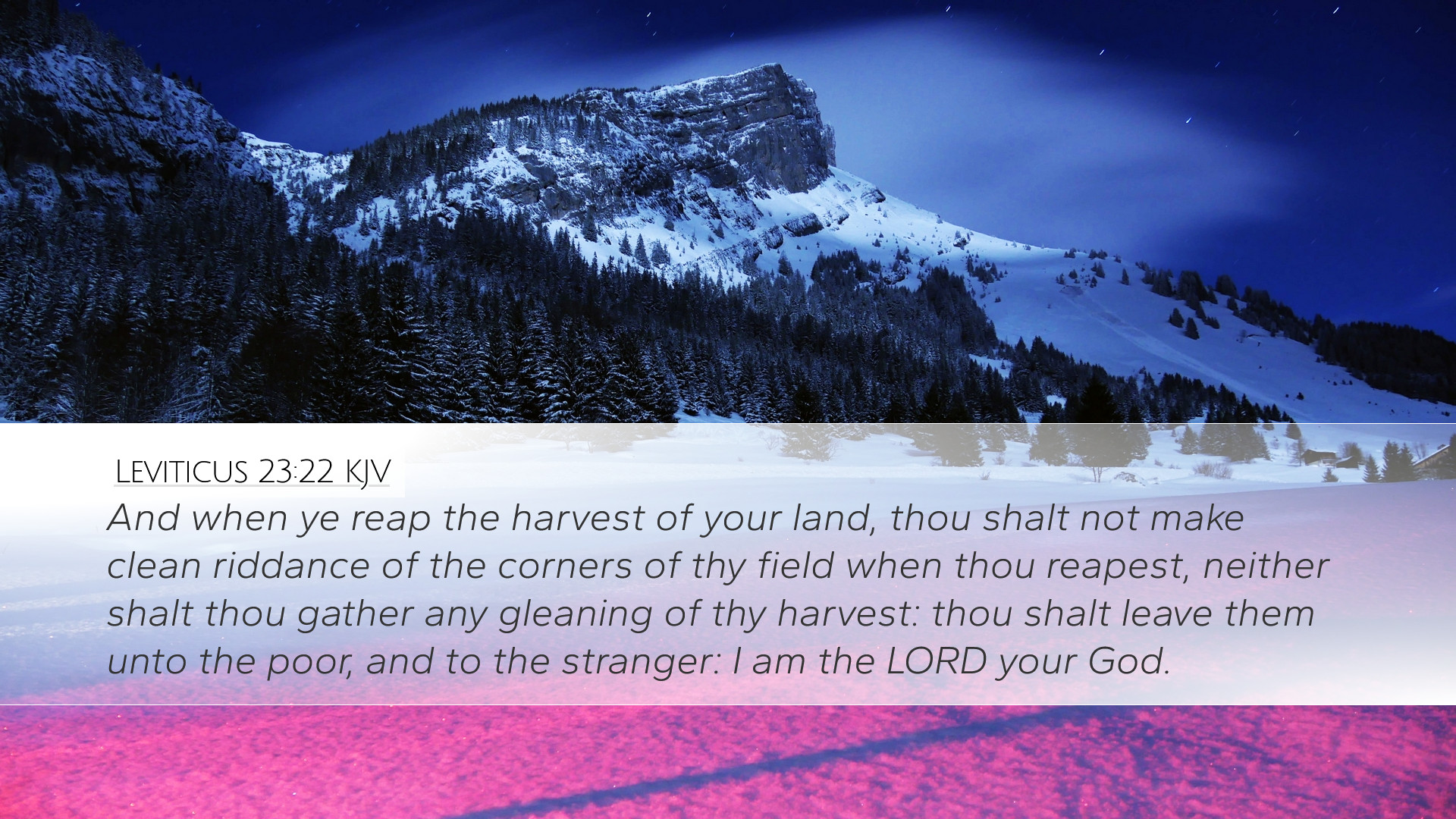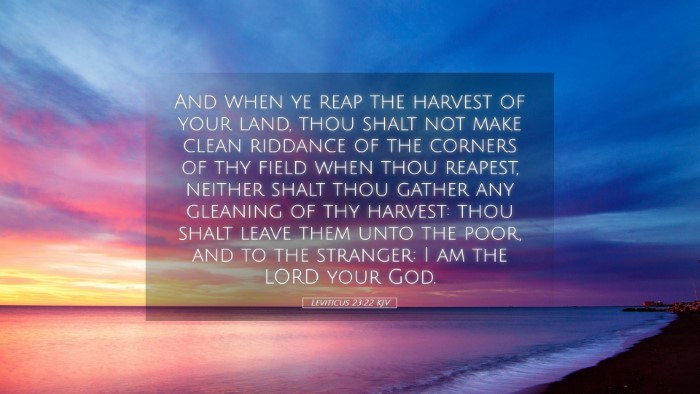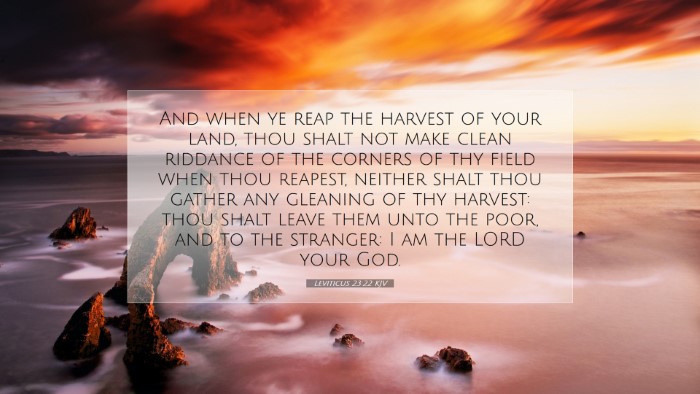Commentary on Leviticus 23:22
Bible Verse: "And when ye reap the harvest of your land, thou shalt not make clean riddance of the corners of thy field when thou reapest, neither shalt thou gather any gleaning of thy harvest: thou shalt leave them unto the poor, and to the stranger: I am the LORD your God." (Leviticus 23:22 KJV)
Introduction
Leviticus 23:22 presents a profound principle within the Jewish law that extends beyond mere agricultural practices to illuminate the character of God and the ethical responsibilities of His people. The verse is nestled within a larger framework detailing the festivals and seasons of worship, reminding the Israelites of their covenant obligations to God and to one another, particularly to those in need.
Theological Insights
This verse emphasizes God's concern for the welfare of the poor and marginalized within the community. It showcases the integration of worship and social justice, mandating that religious observance includes a tangible care for others. As noted by Matthew Henry, "This law exhibits the goodness of God, as it provides for the poor's sustenance and prevents the canker of covetousness in those who harvest."
- Justice and Mercy: The Hebrew term used in this passage suggests a divine mandate to exhibit justice and mercy, which are central themes in both the Old and New Testaments.
- Gleaning as a Community Practice: This commandment illustrates a shared responsibility within the community, pointing to the importance of community welfare over individual gain.
Cultural Context
In the ancient Near Eastern agricultural context, harvest time was a pinnacle moment of economic output. The act of leaving the corners of the fields unharvested and allowing gleaning for the poor was radical, fostering a culture of generosity. Albert Barnes comments on this saying that it serves as a "safeguard against greediness" and "reminds us of the interdependence of society."
- God’s Provision: The structure of the command illustrates a God who provides, not only to the affluent classes but ensures sustenance for the impoverished as an integral aspect of His creation.
- Social Equity: The notion of leaving behind portions of the harvest for those in need served as an implicit reminder of equality among God's creation, regardless of social standing.
Spiritual Applications
The spiritual implications of Leviticus 23:22 extend into the realms of charity, humility, and community responsibility. Adam Clarke highlights that this verse is “an example of civil policy in preceptive legislation,” unpacking how applicable principles of sharing and charity resonate profoundly with contemporary readers.
- Generosity as an Act of Worship: The act of leaving gleanings behind becomes a symbol of worship that mirrors God's grace towards humanity.
- Awareness of Needs: Pastors and church leaders can draw from this verse to encourage congregations to be mindful of the needs within their local communities and act accordingly, fostering a culture of generosity.
Conclusion
In Leviticus 23:22, we witness a dynamic intersection of faith, societal responsibility, and divine expectation. This commentary, derived from the reflections of esteemed biblical scholars, emphasizes the necessity for modern believers to embody the principles of justice, mercy, and communal care found in the law of Moses. By adhering to these ancient truths, the contemporary church can play a pivotal role in addressing the needs of the marginalized while demonstrating the heart of God in a world often filled with injustice and inequality.


